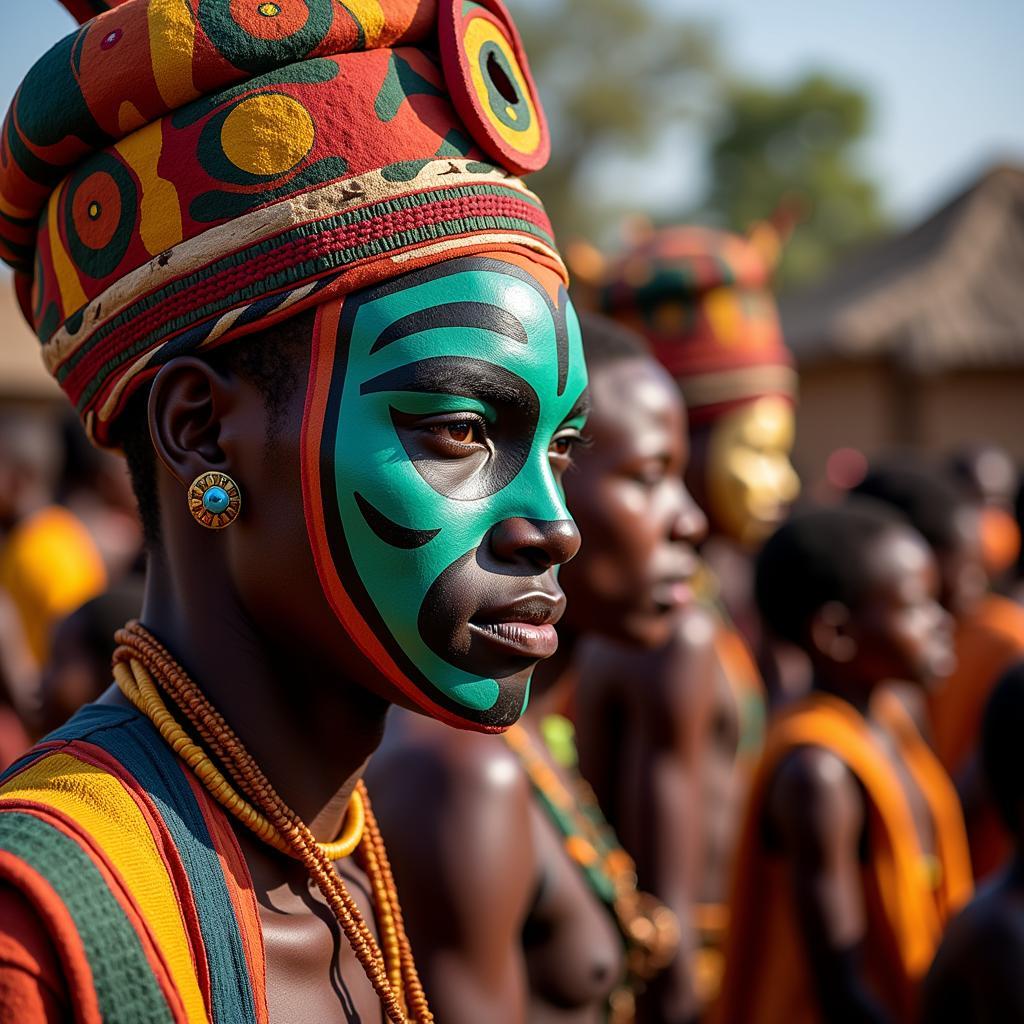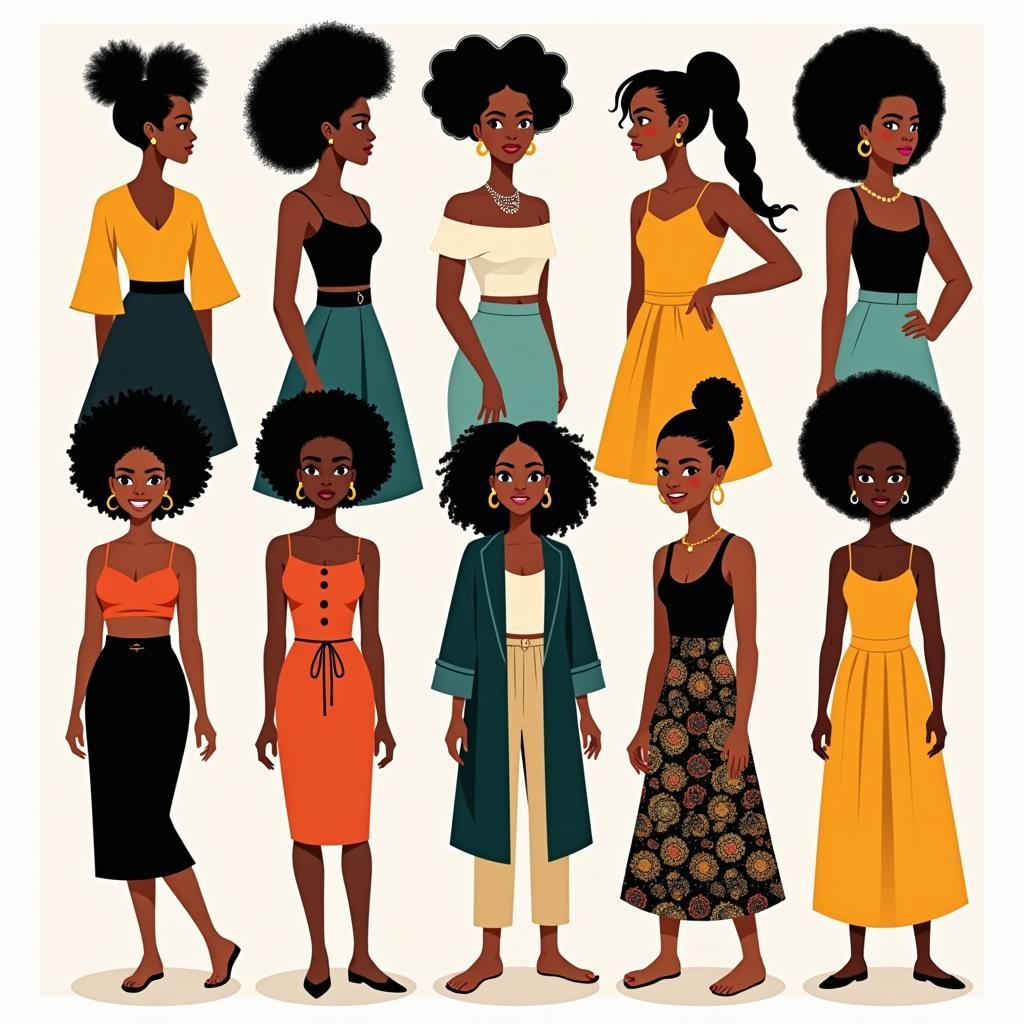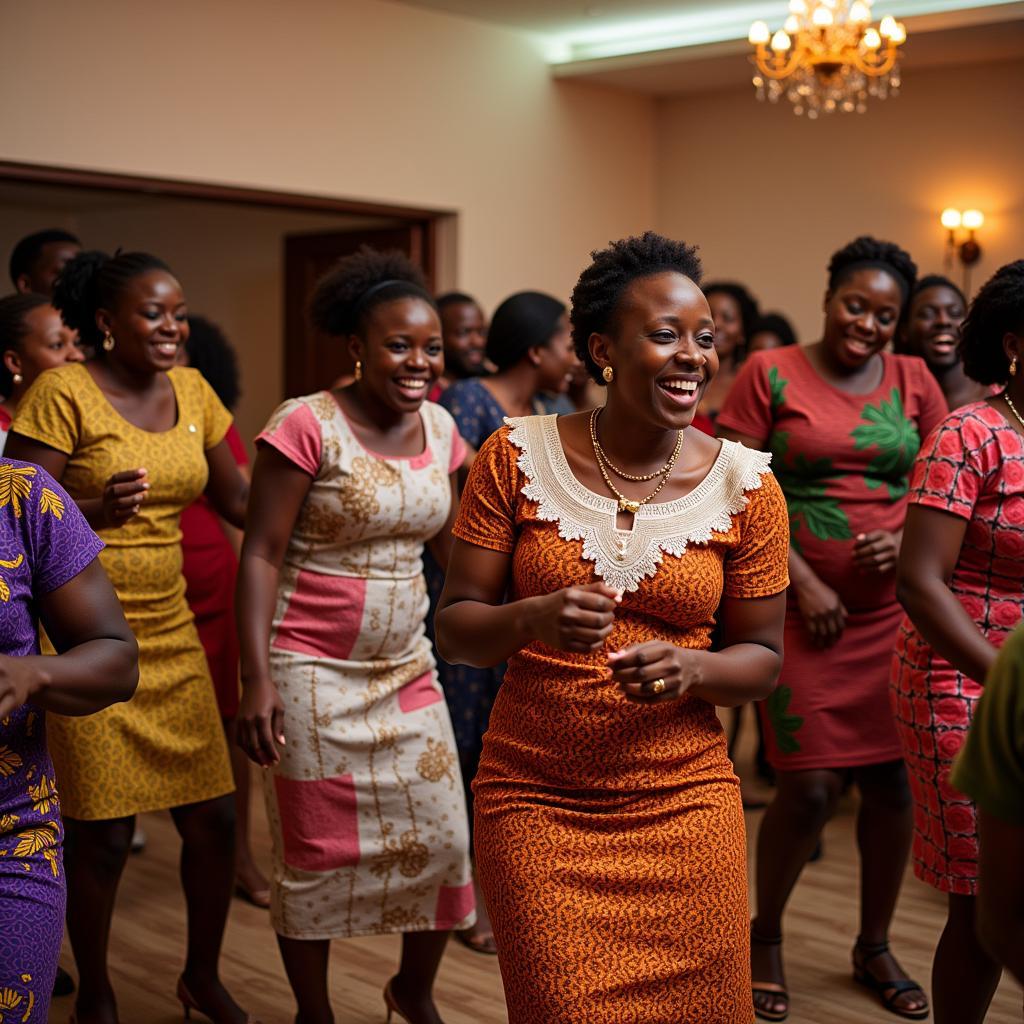Is African Culture Better Than Western Culture? A Nuanced Perspective
The question of whether African Culture Is Better Than Western Culture is complex. It’s a comparison laden with generalizations and oversimplifications, often rooted in biased perspectives. Instead of declaring one superior, this article explores the unique strengths and values inherent in both, highlighting areas where they could learn from each other. We will delve into specific aspects of African culture, contrasting them with Western counterparts, to foster a deeper understanding and appreciation for the diversity of human experience.
Ubuntu: A Cornerstone of African Philosophy
One of the most celebrated aspects of African culture is the concept of Ubuntu. Often translated as “I am because we are,” Ubuntu emphasizes interconnectedness, community, and collective responsibility. It fosters a strong sense of belonging and mutual support, where individual success is tied to the well-being of the whole community. This contrasts sharply with the often individualistic focus of Western societies, where personal achievement and independence are highly valued. This ethical concept is further discussed on African ethical concept of ubuntu.
In many African communities, decisions are made collectively, considering the impact on everyone. This emphasis on communal harmony can lead to a greater sense of social cohesion and stability. However, some argue that this approach can sometimes stifle individual expression and innovation.
 Ubuntu: Community celebration in a rural African village
Ubuntu: Community celebration in a rural African village
Oral Tradition and the Preservation of History
African cultures have a rich tradition of oral storytelling, passing down history, knowledge, and values through generations. Griots, or storytellers, play a vital role in preserving cultural heritage, using music, poetry, and narratives to transmit wisdom and historical accounts. While Western societies primarily rely on written records, the oral tradition in Africa fosters a strong connection to the past and emphasizes the importance of shared memory.
This emphasis on oral tradition also promotes strong communication and interpersonal skills, as narratives are often interactive and engaging. It fosters a deep appreciation for language and its power to connect people and preserve cultural identity. Read more on this topic on African freedom songs.
Art, Music, and the Expression of African Identity
African art and music are vibrant expressions of cultural identity, reflecting the diversity and richness of the continent. From intricate masks and sculptures to rhythmic drumming and soulful melodies, African artistic traditions are deeply rooted in spirituality, history, and social commentary. While Western art forms often emphasize individual expression and aesthetic beauty, African art frequently serves a communal purpose, used in rituals, ceremonies, and social gatherings.
 African Mask: Ritual Ceremony in West Africa
African Mask: Ritual Ceremony in West Africa
The diversity within African musical traditions is immense. Different regions boast unique instruments, rhythms, and vocal styles. This musical richness reflects the vast tapestry of African cultures and languages. Explore how African cultures encourage those who made mistakes.
Is One Culture “Better”? Embracing Cultural Relativism
The question of whether one culture is “better” than another is ultimately subjective. Cultural relativism suggests that cultures should be understood and evaluated on their own terms, rather than judged against external standards. Both African and Western cultures have unique strengths and weaknesses, and each offers valuable contributions to the human experience. Perhaps the most productive approach is to focus on mutual understanding and appreciation, recognizing the richness and diversity of human expression.
Conclusion
The comparison between African and Western cultures reveals not a hierarchy, but a spectrum of human experience. While African culture often prioritizes community, oral tradition, and spiritual interconnectedness, Western culture often emphasizes individualism, written records, and scientific progress. Ultimately, both cultural paradigms offer valuable insights into the human condition. Rather than seeking to determine which is “better,” we should strive to learn from each other, fostering greater understanding and appreciation for the diverse tapestry of human culture. For further insight on African flags and their symbolism, see more about African countries with the flag of sunrise.
FAQ
- What is Ubuntu? (Ubuntu is an African philosophy emphasizing interconnectedness and community.)
- How is history preserved in African cultures? (Primarily through oral tradition and storytelling.)
- What role does art play in African culture? (Art often serves a communal purpose, used in rituals and ceremonies.)
- What is cultural relativism? (The idea that cultures should be understood on their own terms.)
- How can we foster greater cultural understanding? (Through open dialogue, exchange programs, and respectful engagement.)
- How does the concept of Ubuntu contrast with Western individualism? (Ubuntu emphasizes community well-being, while Western culture often prioritizes individual achievement.)
- What are some examples of African artistic traditions? (Intricate masks, sculptures, rhythmic drumming, and soulful melodies.)
Further Exploration
Consider exploring more about the African concepts discussed above. You can also learn about other aspects of African Life and culture by exploring our other articles.
Contact Us
For any inquiries or assistance, please contact us at Phone: +255768904061, Email: kaka.mag@gmail.com, or visit us at Mbarali DC Mawindi, Kangaga, Tanzania. Our customer service team is available 24/7.


